General Election 2019: It's more than just Brexit in Scotland
- Published
- comments
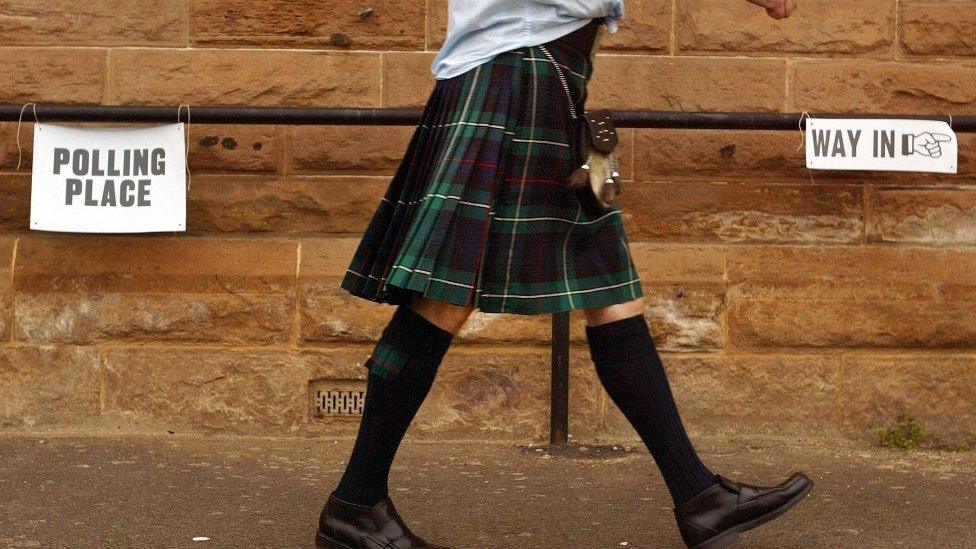
It has been dubbed the Brexit election, but for Scotland it isn't all about the UK's place in Europe. There's another major constitutional question for voters to consider.

The 2016 vote for the UK to leave the EU has given new energy to the debate over Scottish independence.
Why? Because Scottish voters backed remain by 62% to 38% - a result markedly different from the UK-wide outcome of 52% to 48% for leave.
So, even though it's only five years since the referendum on Scottish independence, the SNP and others are campaigning hard for another one. The notion, often promoted by SNP politicians in 2014, that this vote was a "once in a generation" opportunity has been abandoned.
They argue that Brexit against the expressed wishes of the Scottish public is a "significant and material change of circumstances" justifying indyref2. Their Conservative rivals accuse the SNP of being bad losers - refusing to abide by the results of either the independence or EU referendums.
So what are the options for voters in Scotland as they weigh up the parties' competing positions on both Brexit and independence?
Here's where they stand on membership of the European and UK unions.
Remain - Remain
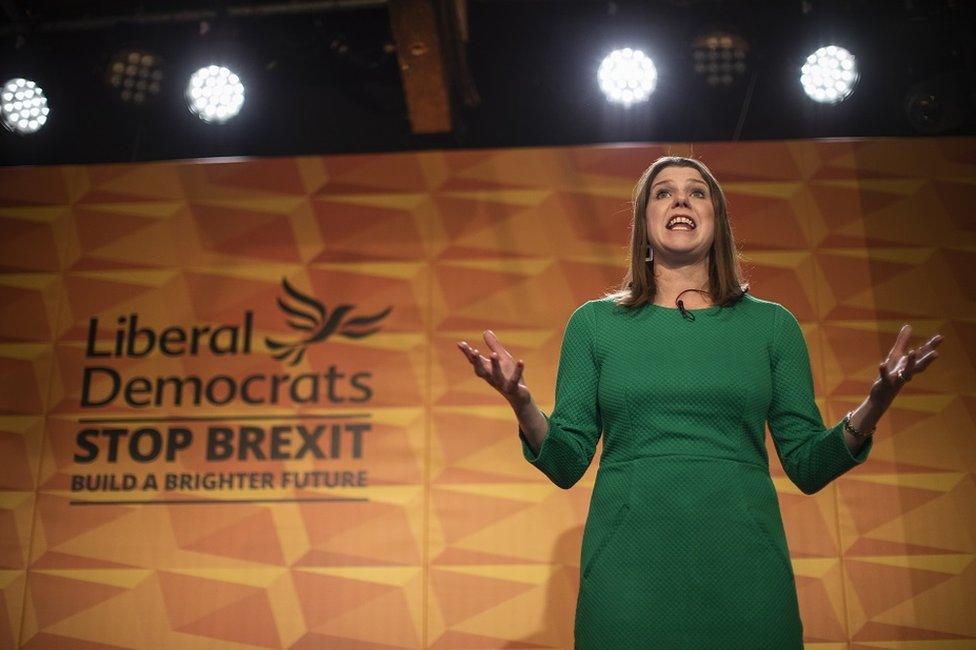
The Liberal Democrats, led by Jo Swinson, have put remaining in the EU at the heart of its election campaign

The Liberal Democrats want the UK to remain in the EU and for Scotland to remain in the UK.
They favour another Brexit referendum but oppose another referendum on independence.
They have said that in the unlikely event the Lib Dems form a majority government at Westminster, they would cancel Brexit, without another referendum.
Scottish Labour is also, officially, a remain party but its position is more complicated.
The party has made clear it would not necessarily stand in the way of indyref2 if, for example, independence-supporting parties won a majority at the 2021 Holyrood election.
While Scottish Labour is committed to campaigning for remain in any future Brexit referendum, the UK party leader has said he would stay neutral.
Labour wants to renegotiate the terms of Brexit and hold another referendum on that versus staying in the EU within six months of the general election.
Remain - Leave
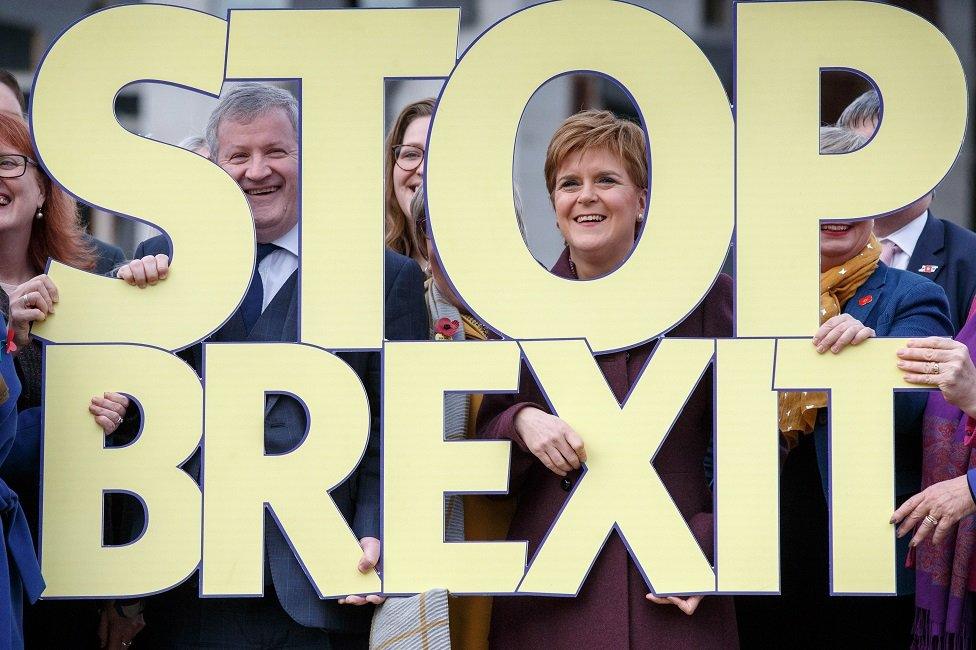
Stop Brexit is the same message as the Lib Dems, but central to the SNP is its Scottish independence policy

The Scottish National Party has styled itself as a Stop Brexit party, because it wants Scotland and the wider UK to remain in the EU.
It would back another Brexit referendum and in the event of the UK facing a no-deal departure from the EU, it would support cancelling Brexit.
But the SNP ultimately wants Scotland to choose independence as an alternative to Brexit.
It wants Scotland to leave the UK and to become an independent EU member state.
The SNP is calling for another referendum on independence in the second half of 2020.
The Scottish Greens, who have 22 candidates in the election, also want to stay in the EU and see independence from the UK as the best way to achieve that.
Leave - Remain
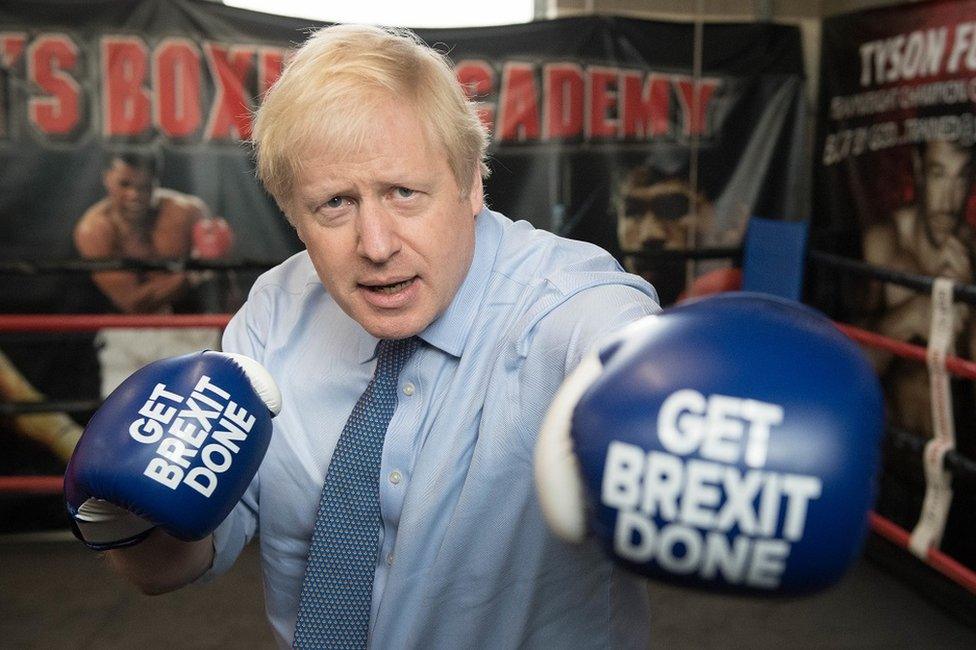
PM and Tory leader Boris Johnson is fighting this election on a leave-the-EU ticket

Although the Scottish Conservative leadership campaigned hard against Brexit in 2016, the party now backs leaving the EU.
It supports the revised Withdrawal Agreement negotiated by Boris Johnson with exit on 31 January 2020.
It is opposed to another Brexit referendum.
As a unionist party, the Scottish Tories are firmly committed to Scotland remaining in the UK and strongly oppose another independence referendum.
The Brexit Party and UKIP, that are standing in some Scottish constituencies, also favour leaving the EU with Scotland remaining in the UK.
Leave - Leave
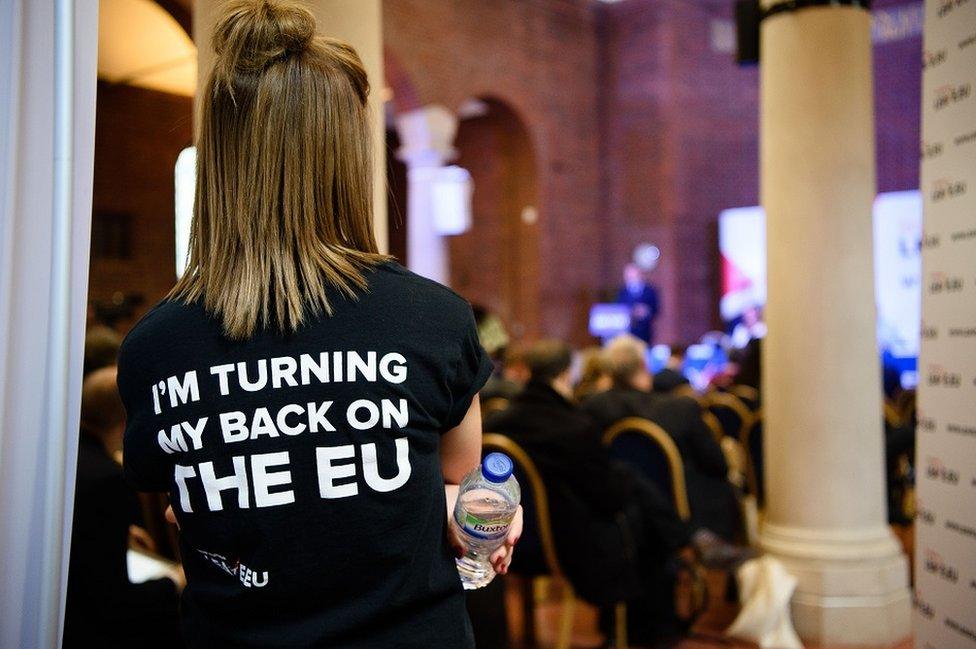
What do Brexiteers and pro-independence supporters turn to?

There is no mainstream political party in this election campaigning for Scotland to leave both the EU and the UK.
Brexit is only supported by parties opposed to independence, even though it is estimated that about a third of SNP supporters voted to leave the EU in 2016.
There is evidence to suggest that Brexit has shifted attitudes to independence, external.
Some who voted "no" in 2014 would now vote "yes" for Scotland to become an independent country within the EU.
There are also former "yes" voters who have switched to "no" fearing that Brexit upheaval would be compounded if Scotland decided to leave the UK.
Before the election campaign got under way, the net effect of these movements seemed to favour the "yes" side.
But the route to another yes/no vote on independence is not straightforward. The SNP favours holding a referendum on the same basis as last time, with the agreement of Westminster.
That would mean the next UK government granting a section 30 order to give Holyrood explicit legal authority for indyref2.
All three main UK parties have said they would withhold agreement. But Labour's outright opposition is confined to the "early years" of a Labour government. That means that the SNP's best hope of achieving indyref2 is a hung parliament, with Labour as the largest party.
In those circumstances, the nationalists hope Labour would soften its stance in order to secure SNP support.
Labour insists that it would not do deals. Instead, the party says it would put forward its programme and invite other parties, including the SNP, to back it in the knowledge that the alternative would be a Conservative-led government.

CONFUSED? Our simple election guide, external
POLICY GUIDE: Who should I vote for?, external
